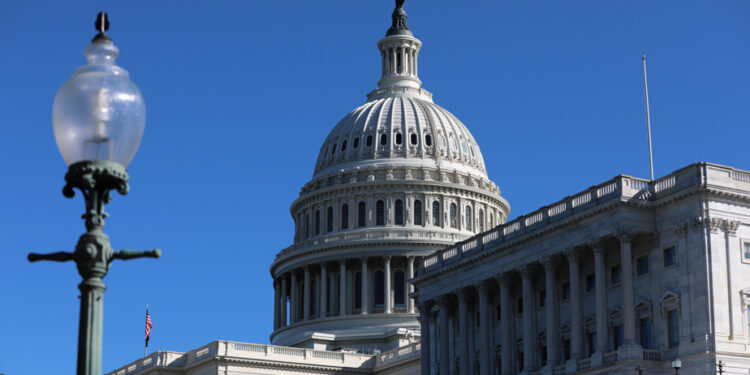(Washington) Frozen civil servant salaries, closed museums and national parks, affected air traffic: the United States is increasingly feeling the effects of the budgetary paralysis, which enters its third week on Monday with still no outcome on the horizon.
Since 1er October, Donald Trump’s Republicans and the Democratic opposition find themselves deadlocked in Congress, unable to agree on a new budget.
The federal state has since found itself in a state of “shutdown”, with hundreds of thousands of civil servants immediately placed on technical unemployment.
Short on funds, Washington’s public museums were forced to close their doors on Sunday for the duration of the budget shutdown. Some national parks, such as the Carlsbad Caves in New Mexico (South-West), have also been inaccessible to visitors since the start of the “shutdown”.
And at airports, concern is growing that queues are getting longer due to increasing absenteeism by air traffic controllers and transport security officers.
Whether they are technically unemployed or not, all of the more than 2.3 million federal civil servants will not receive their salaries as long as the blockage continues.
A significant shortfall and a “very stressful” situation, Marilyn Richards, a federal civil servant from Missouri, in the center of the country, told AFP.
“Most people live from day to day, counting on the next salary to pay the bills and not be without electricity… This is my case,” she stressed.
“Hostage”
Only the more than 1.3 million military personnel should get their pay on Wednesday as planned, after Donald Trump ordered Saturday to use certain funds in this direction, in a message on his Truth Social platform.
In a country where members of the armed forces hold a special place among the general public, his message is part of a desire to win the battle for popular opinion.
“I will not let the Democrats hold our military, and the entire security of our country, HOSTAGE with their dangerous “shutdown” of the State,” the president added.
In Congress, Republicans are proposing an extension of the current budget, with the same spending levels, while Democrats are calling for an extension of subsidies for health insurance programs for low-income households.
Without an extension, health insurance costs are expected to more than double for 24 million Americans who use the public “Obamacare” program, according to KFF, a think tank specializing in health issues.
Due to the rules in force in the Senate, several Democratic votes are necessary to adopt a budget, despite a Republican majority.
But Donald Trump rejects any negotiation with the opposition on health issues without “reopening” the federal state as a prerequisite.
“That or nothing”
House Democratic Leader Hakeem Jeffries reiterated Sunday that his party is open to discussions with the White House and Republican leaders in Congress.
“Unfortunately, they made the decision to take an ‘it or nothing’ approach,” he said in an interview with Fox News.
Vice-President JD Vance told CBS News that the Democrats’ position was not a negotiation, but a “hostage-taking”, and lamented the “chaos” caused by the situation.
To try to get more and more Democratic senators to give in, Donald Trump has also increased his threats.
“We are going to eliminate certain programs that are very popular with Democrats and which are not popular with Republicans,” he said Thursday.
The next day, the White House announced that it had begun laying off federal workers. More than 4,000 of them, who work in no less than seven different departments, have already received dismissal notices, according to a court document.



